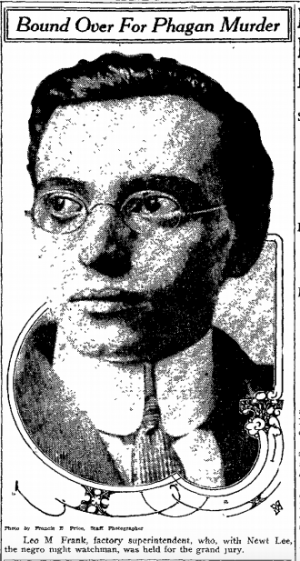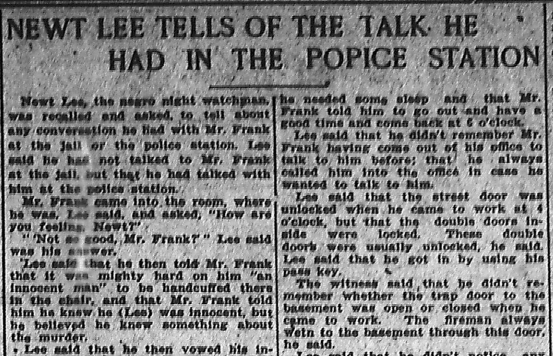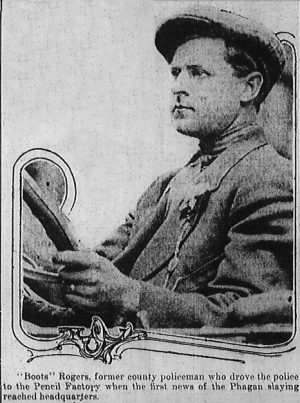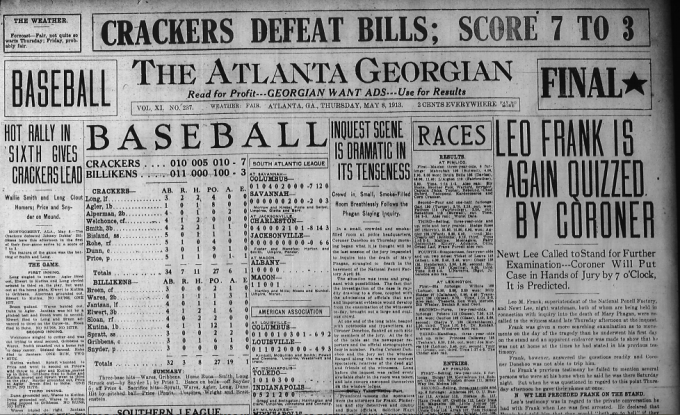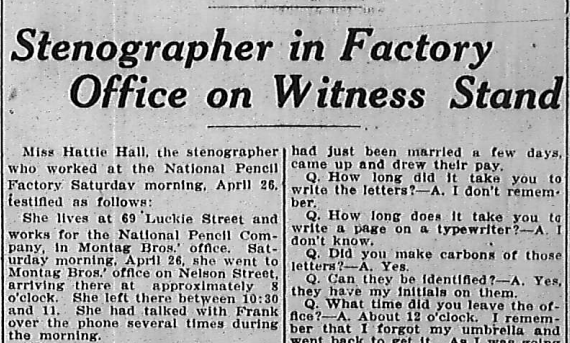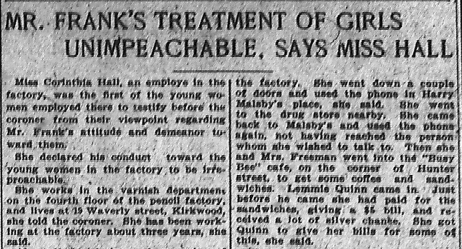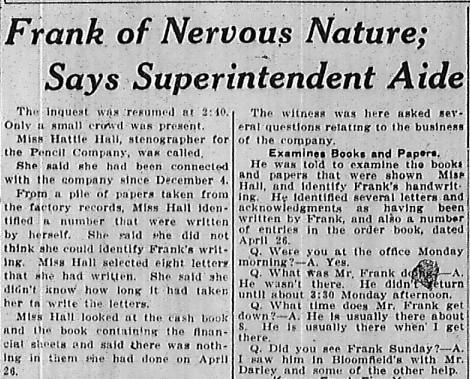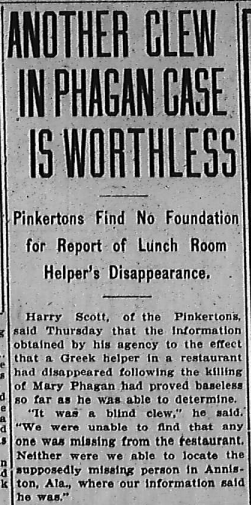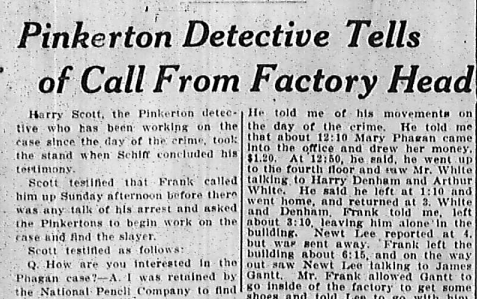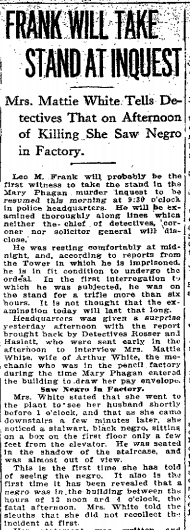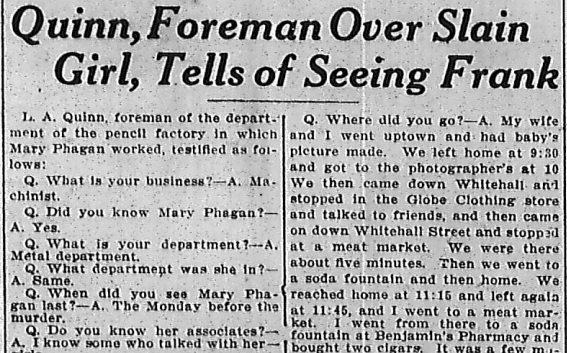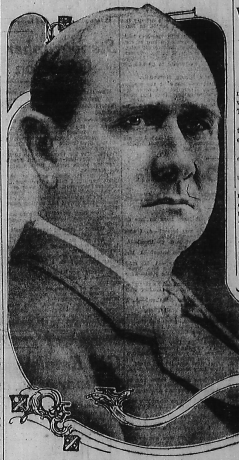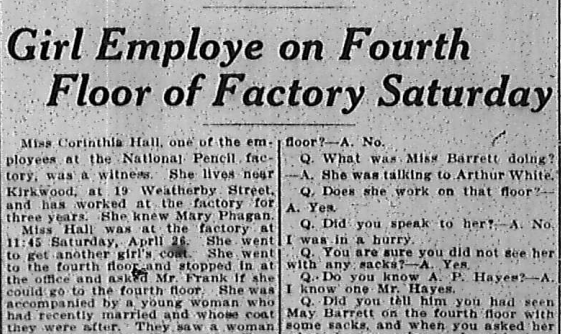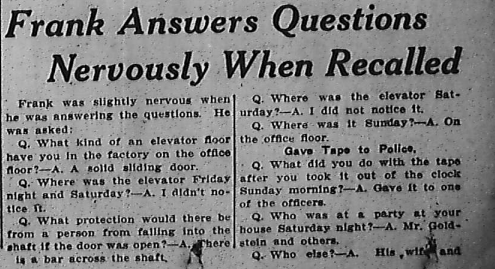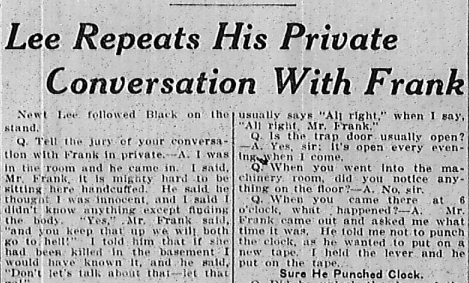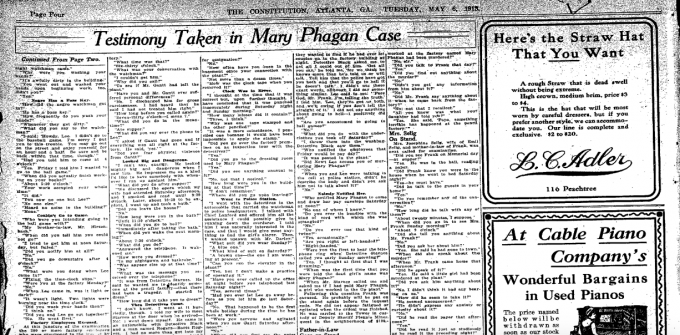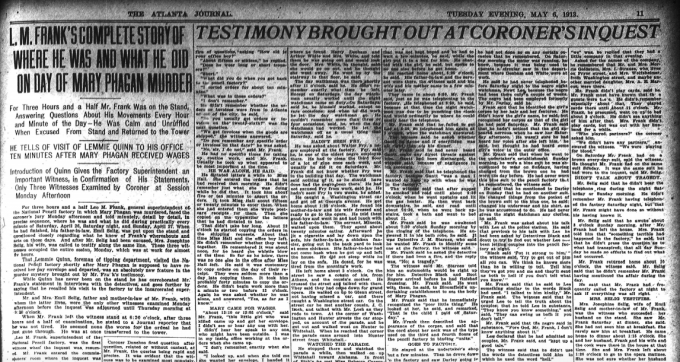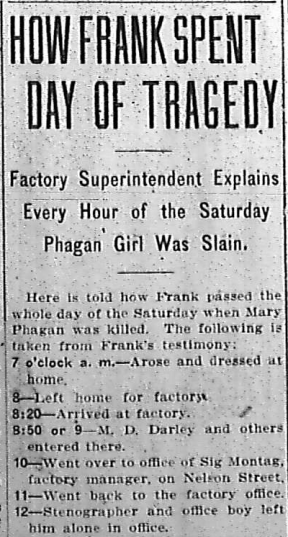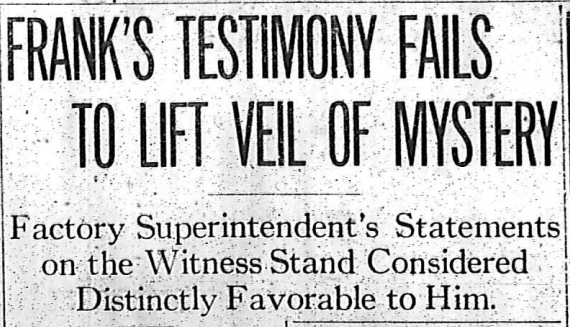Another in our series of new transcriptions of contemporary articles on the Leo Frank case.
Atlanta Journal
Friday, May 9th, 1913
Leo M. Frank general superintendent of the National Pencil factory, was recalled to the stand. He was questioned regarding the elevator. The coroner wanted to know what kind of a door there is to the shaft on the office floor. The witness replied that it is a heavy door solid, that slides up and down.
“Where was the elevator on Saturday, April 26?” he was asked.
“I didn’t notice.”
“Where was it on Friday night?”
“I didn’t notice.”
“Was the door open on Saturday?”
“I didn’t notice.”
Asked whether it would not be possible for some one to fall into the elevator shaft if the door was open, he replied that there is a bar across the door.
“Where was the elevator after the murder?”
“I can only say it was at the office floor on Sunday morning,” replied the witness.
The coroner reverted to the time-clock. “What time did you take the slip out of the clock?” he asked. Continue Reading →


